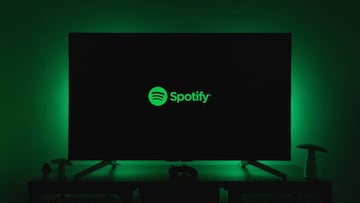Spotify removes ‘tens of thousands’ of AI-generated songs
The music streaming giant is cracking down on the use of AI.

Spotify has removed “tens of thousands” of songs generated by Artificial Intelligence from the platform, as well as strengthened its monitoring system to detect such files and fraudulent activity.
The move comes after complaints of potential fraud by record labels such as Universal Music.
Rooting out artificial music
As detailed by the Financial Times, the online music giant removed about seven percent of songs uploaded to the platform that are suspicious of ‘”artificial playback” through the use of “bots” to inflate the metrics of its content.
Software company Boomy, a start-up founded in 2021 in California, claims that its users can “create original songs in seconds” and that more than 14 million audio tracks have been developed with its technology.
Subsequently, its users can publish this AI-created material on streaming services such as Spotify, and generate income. Until now.
Spotify confirmed that the tracks were created through Boomy and told the Financial Times that it has eliminated some of Boomy’s content, saying that it continues to work to delete everything that has been generated with AI from its service.
The use of AI in the entertainment industry
In April Universal Music urged both Spotify and Apple Music to block the training of AI models, because by allowing the songs in their archives, they would be violating the copyright of the songs they use.
The debate comes amid the WGA strike, where Hollywood screenwriters are demanding better payment structures — and also a ban on AI.
Related stories
The writers, much like music artists, are concerned that implementing Artificial Intelligence software into the entertainment industry will undermine talent and put a lot of people out of a job. Production companies are already looking at leaning on AI for up to 80 percent of content generation.
Should music go the same way, artists are concerned music will be diluted with robot-generated creations and that people will be less likely to buy their music.


